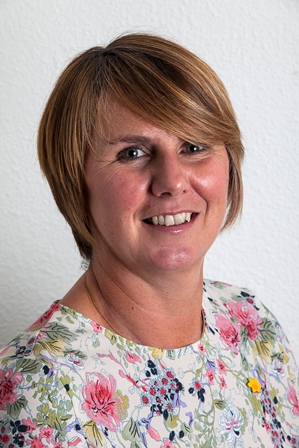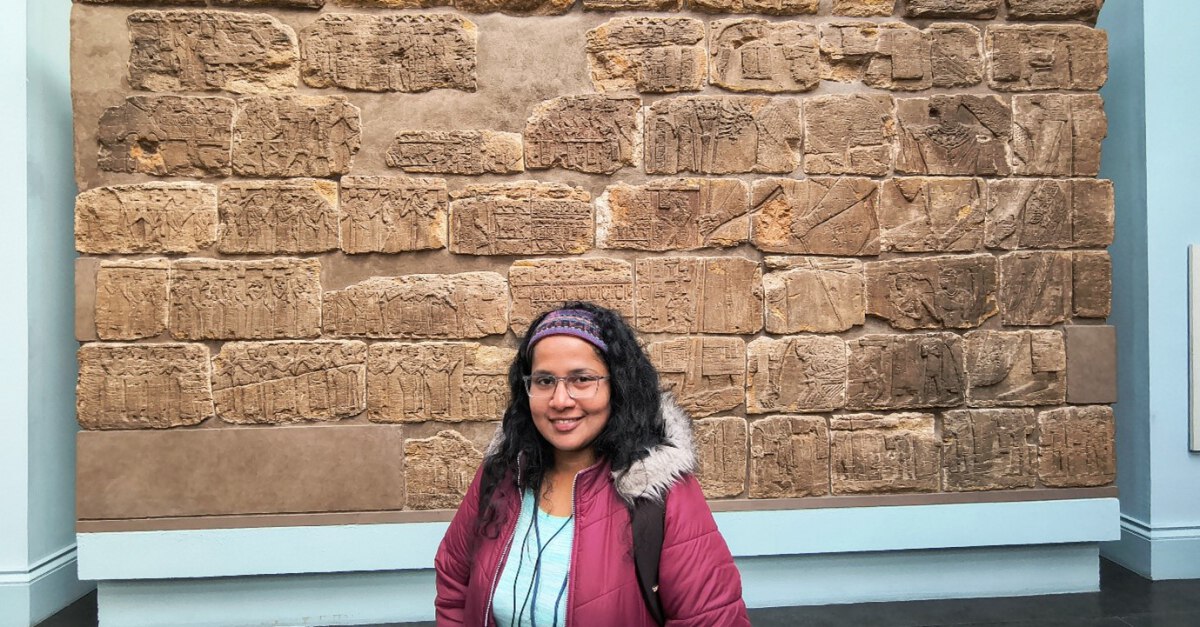Moving past COVID-19 with the help of the Cranfield MSc
24/06/2020

Prior to the coronavirus pandemic, a typical day for Cranfield Master’s in Management and Leadership student Jo Stradling might have involved travelling into London for a meeting, working out of a nurses’ office in Northampton, or visiting a hospice in Birmingham. As a divisional general manager for end-of-life charity Marie Curie, Jo’s days were busy and varied as she juggled work, home life and her studies.
Then the UK entered lockdown, and Jo and many of her colleagues began to work from home. Overnight, the charity’s vital work changed dramatically, requiring new levels of personal resilience and innovative thinking from Jo and her colleagues.
Marie Curie provides nursing and care for people living with terminal illnesses and their families, either in their own homes or in one of the charity’s nine hospices. When the UK went on lockdown, its vital services were on the frontline.
“We had to first and foremost make sure our patients and nurses were safe,” Jo said. “We are caring for some of the most vulnerable people in society, so we needed to ensure we had the correct PPE and processes in place to be able to shield them from the virus.
“The toughest decision we had to make was to follow the guidance to close our hospices to visitors. It was so difficult for our staff, as it goes against all their natural instincts and care training to keep patients from seeing their loved ones. We are all about building relationships with our patients, ensuring a friendly face they recognise is in charge of their care – but now that face is covered by a mask and a shield.”
As a former intensive care and A&E nurse now responsible for two of the charity’s hospices, Jo was only too aware of the impact COVID-19 was having.
She said: “I was sat at my desk at home thinking: ‘What difference am I making, sat here? I could be working in intensive care, helping to take care of people.’ Some of my direct reports trained as nurses as well and felt the same. We had to talk each other around and focus on how we could help from home.”
“It has been difficult,” she reflected. “I was a nurse during the AIDS crisis, and I took care of patients with SARS, but this has been different. COVID-19 doesn’t care who it affects. We lost one of our nurses to it, which was heart-breaking.”
Much of Marie Curie’s work over the past few months has centred around using technology in an innovative way to connect patients to their families, as well as providing wellbeing support to staff to help them cope with the changes to the way they work. But, as general manager responsible for service delivery, quality control, governance and contracts, a large part of Jo’s focus has been on the impact of the virus in the longer term.
“When lockdown began, overnight, the bottom fell out of our fundraising,” Jo said. “We realised that where we had been working towards wasn’t going to happen, and that we were facing a massive deficit unless we started to do things differently.
“The public and even often a lot of medical professionals don’t necessarily realise where the money comes from for some of the services available in the community. The NHS might fund 30% or 40% of it – or even in some cases 20% – and it is charities that foot the rest of the bill.
“Lockdown has shown up a number of areas in which we are vulnerable. Before, we weren’t very agile; we were very traditional in everything we did. Now, we are looking at modernising the way we work, using technology and making sure we are working together and not in silos. We recognise the need for innovation and the need to move with the NHS. We are looking at the possibility of online consultations, but we don’t have the same kit as the NHS so we are challenging our IT colleagues to deliver on what we need. We are also looking more closely at our localities, realising that what will work in Norfolk won’t necessarily work so well in Lincoln or Birmingham for example.”
Jo credits studying for a Master’s-level apprenticeship at Cranfield with exposing her to tools, techniques and ideas that have helped her approach the charity’s current challenges with new eyes.
She said: “I chose Cranfield because of the mixture of people on the course. I was determined I didn’t want to be with a load of other people from within health and social care. I wanted to pick up some new ideas: to stretch my thinking in a different way.
“As a nurse, you aren’t trained in things like accountancy or financial management. You learn as you go, picking up bits as you go along. So, the course has been a real eye-opener. I’ve gained lots of ideas from the corporate world that we are starting to apply.
“The modules on HR, change and risk management have obviously been useful with everything that’s been going on over the past few months. I’ve also discovered that we have a wealth of information that we either don’t use or don’t act on in a timely way. One of my current projects is looking at annual leave and trying to model what a second wave of COVID-19 might do to our staff sickness. We are also looking at establishing a corporate sustainability plan, the need for which has been a key takeaway for me from the Cranfield programme.”
“Studying has been a bit of a welcome distraction for me at the moment,” she added. “It is something outside the day job that I can get lost in for a little while. The other members of my Cranfield learning team have been really supportive. They all have their own outlooks on COVID-19 and it’s been interesting to get their perspectives.”
Looking to the future, Jo has plans for an innovative new approach to spreading awareness of the charity’s work, an idea she submitted as an assignment for the leading corporate sustainability module of the MSc.
She said: “We badly need to engage the younger generation with what we do. They tend to have a high awareness of sustainability, and I discovered there is an app called Water Refill where, if you type in your postcode, it tells you all the places nearby where you can get your water bottle filled up. We have 160 shops across the UK, so I had the idea to sign us up, with the hope that it would generate more footfall. Hopefully those extra visitors might put a pound in the collection box or pick up some second-hand clothes while they are in store, as well as learn a bit more about our work.”
Jo will have to wait until the charity can safely re-open its shops to implement her plans, and for now her focus is on helping to steer the charity through COVID-19 and setting it up for whatever future lies beyond.
“Depending on what happens with our fundraising, there may be big consequences to come for us,” she said. “We will be ok this year but, for next year, we need to look at how we can change our ways. Digital will be a big part of it, and I think we will see services change on a local level as we look more closely at how we support people in their own homes.
“As an organisation, we are still working out what our future looks like. We recognise that we might not be travelling into London so often, and might be working from home more – we know it works, and we will be reducing our carbon footprint.
“It will be interesting to reflect back in a year’s time and see if things have changed significantly or if they did for a while and then went back to normal. I think we’ve done some great work in my team over the past few months though, and would hate to lose momentum.”
“I think a crisis like this brings out the best in people,” she added. “In a way, the financial challenge is exciting for us, as it pushes us to be a more modern, reactive organisation with a bigger voice.
“We need to talk about end-of-life care. This is an area we have campaigned on previously and that we hope will grow after COVID-19, as we deal with the repercussions from people not being around their loved ones when they died.
“Before the pandemic our voice wasn’t loud. Now, it wants to be loud.”
Categories & Tags:
Leave a comment on this post:
You might also like…
From Sri Lanka to Cranfield: How a Commonwealth Scholarship transformed my environmental engineering journey
Hi, I’m Kavithanjali Uthayashangar and I’m here to tell you about my journey into environmental engineering. It began with a simple but powerful motivation: a desire to understand how engineering can ...
Inside the Air Transport Management MSc: Classes, assignments, and group project work
What’s it really like to study Air Transport Management at Cranfield? Adit walks us through a typical day, assignment expectations, and the excitement of hands-on group projects. This is the second of three blog ...
Using Factiva to research a company
If you’re tasked with researching a company, your first port of call might be to search Fame or EBSCO Business Source Complete. Your immediate reaction might not be to look at Factiva. However, for larger ...
How do I write a secondary reference … in the NLM style?
Secondary referencing is used when you’re reading a work which includes a quotation from another author, and you – the researcher – can’t obtain the original source. We always advise, where possible, to try to ...
Reaching new heights: How a Global Excellence Scholarship fuelled my aerospace dreams
Leaving my home in India to pursue an MSc in Aerospace Dynamics at Cranfield University was a leap of faith. Hi, I’m Oliza Kachroo and as an international student, the transition ...
How do I reference…when delivering a presentation?
Just as you cite and reference sources in written work, you should also acknowledge the sources you use or quote in oral presentations. Citing your sources in presentations provides your audience with information about the ...






